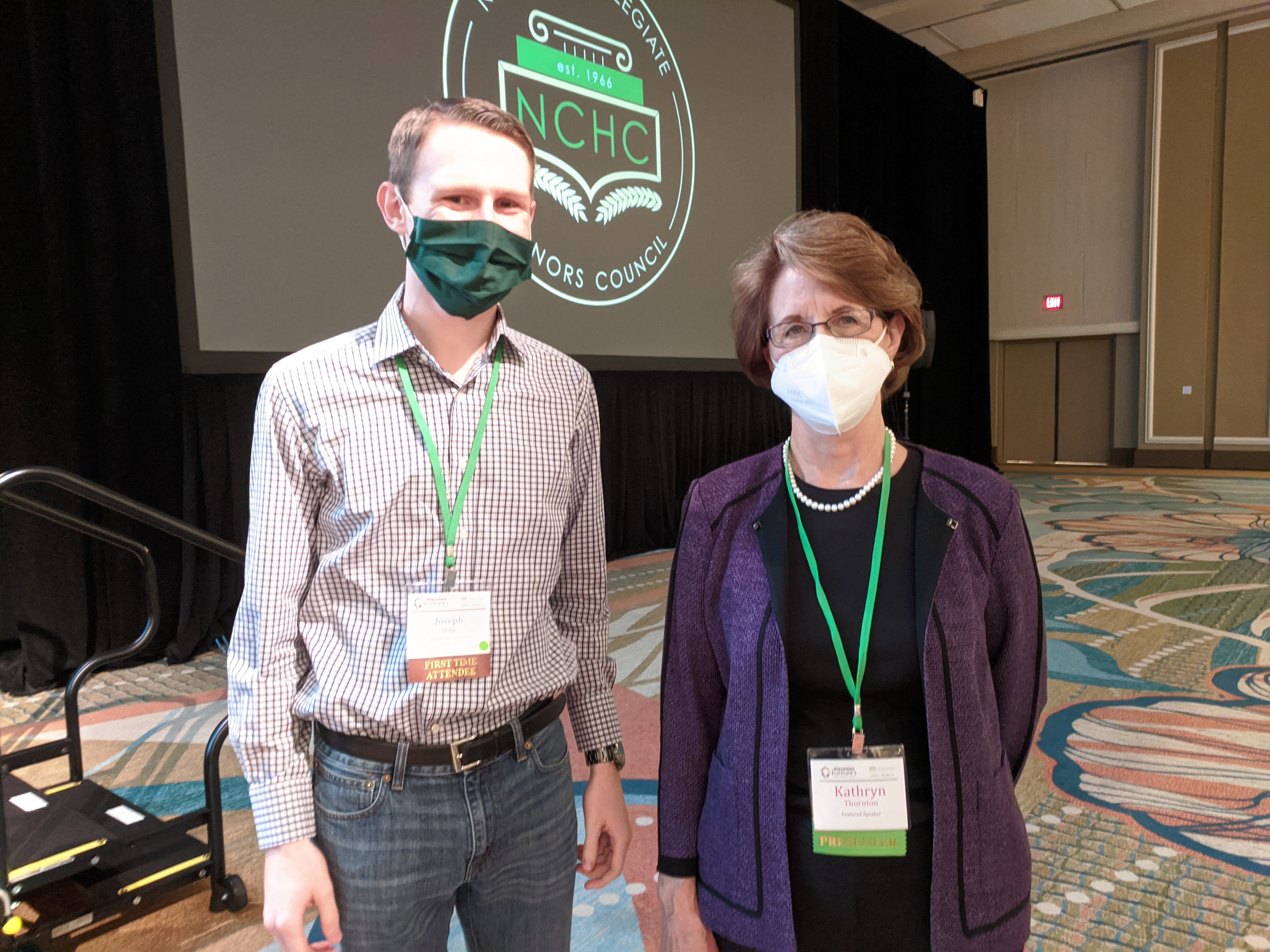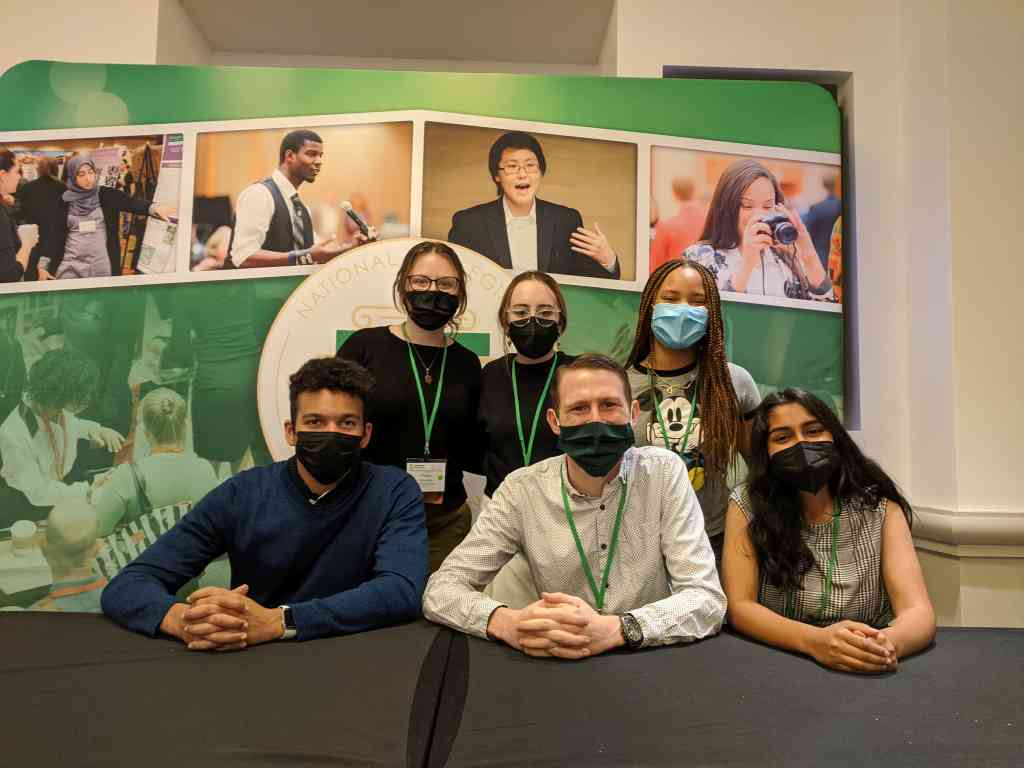Lessons from Solitude
Personal reflections on the 2021 Conference of the National Collegiate Honors Council in Orlando, Florida.
For most of the last two years, the world has been forced to accept solitude. While a challenging change of pace for a highly extroverted world, this forced solitude has enabled widespread reflection on how to improve the institutions and structures in our societies. According to Susan Cain, the acclaimed author of Quiet: The Power of Introverts in a World that Can’t Stop Talking, such solitude is the source from which “most great ideas spring” because it provides the time and space required for creativity and imagination. As such, it is relevant that this year’s conference of the National Collegiate Honors Council encouraged a re-imagination of the collegiate honors experience across the country by providing time and space for academics across the country to share the challenges, ideas, and successes they have experienced through these last two years of relative solitude. With that understanding, I sought to discover the best ideas on three topics: personal time management, honors peer mentoring, and effective support systems for students working on an honors capstone experience like a thesis.
By paying close attention to the personal stories of the many highly accomplished people who presented at the conference, I learned that a foundational principle of effective time management is to focus on only those activities in which one can be fully invested. One of these people was Dr. Thao Do who, in just 15 years, has excelled in the diverse industries of mechanical engineering, biomedical research, marketing, law, and aviation by being “all in” on her vision of creating and distributing solutions to a variety of worldwide problems. Notably, she did not attempt to master all five of these varied industries at once, rather she moved from one to the next as her greater mastery of the one revealed a need to better understand the next. For example, she decided to pursue biomedical research to learn how nature solved mechanical problems and apply nature’s solutions to solve new problems with machinery. Similarly, during the conference’s opening keynote, Thomas Riddle, made it obvious that one’s hobbies and personal passions can be synergistically integrated into his/her professional work as he described how he used his personal love of Star Wars and Indiana Jones to inspire a completely new set of engaging school curriculums. By taking a closer look at the motivations behind these and other extraordinary accomplishments I saw that there was no “secret formula”, rather each of these amazing individuals found a way to link their personal interests to their professional work. As such, “time management” simply consisted of focusing on those personal interests and applying them in meaningful ways.
 Meeting Kathryn Thornton, one of the NASA astronauts who fixed the Hubble Space Telescope.
Meeting Kathryn Thornton, one of the NASA astronauts who fixed the Hubble Space Telescope.
This principle of deliberate focus also carried into the forums focused on ideas for improving honors peer mentoring. When discussing how different colleges pair mentors and mentees, the shared guiding principle was the question “Who will best provide a meaningful personal relationship with the mentee?”. Even though each college took a different route to answer that question (e.g. matching based on major/interests, letting students pick their mentors, paying mentors so they would dedicate more time, etc.), by the end of that discussion we all felt that a deliberate focus on the ways that mentors could form meaningful relationships with their mentees was paramount to a mentoring program’s success. From there, other ideas like establishing a group of alumni mentors for juniors and seniors, simplifying all honors leadership applications into a single form, and providing training on disability/counseling services served as implementation details for achieving the overarching vision of creating meaningful relationships.
These attributes of an effective mentoring program were also reflected in the forums focused on finding effective ways to support students through a culminating honors experience like a thesis. For example, the University of the Incarnate Word took the mentoring principles literally by creating an alumni mentor group for juniors and seniors that included a focus on the long-term impacts of the thesis experience on the alumni’s professional career. In contrast, Northern Arizona University (NAU) and the University of Idaho focused on sophomores by creating a 1-2 credit course that teaches scholarly/research writing skills. For NAU specifically, their 1 credit course leads students through the creation of a 10-page thesis proposal so that they have a significant foundation for the full senior thesis. Then, representing more of a middle ground, the University of South Carolina focused on creating a mentoring-style relationship between the honors faculty and the senior students through activities like meetings with an honors advisor early each semester that would turn into more regular one on one breakfasts if the advisor felt like the student was struggling more than normal. Though they varied in their specific policies and decisions, each of these institutions first recognized the unique challenges faced by honors students attempting to complete a major research project for the first time and focused on providing personal, mentor-like attention to encourage and teach those students along the path to eventual success.
I am grateful to have attended this conference. The lessons were many, the new friendships are amazing, and the overall experience was inspiring. As Barrett, along with the rest of ASU, comes back to an integrated, in-person college experience, I hope we can both remember these lessons and value the solitude in which they were learned. I believe that by so doing we will be better equipped to deliberately focus on the principles that foster the meaningful, personal experiences that typify the honors experience.
